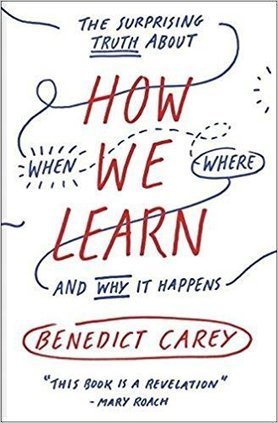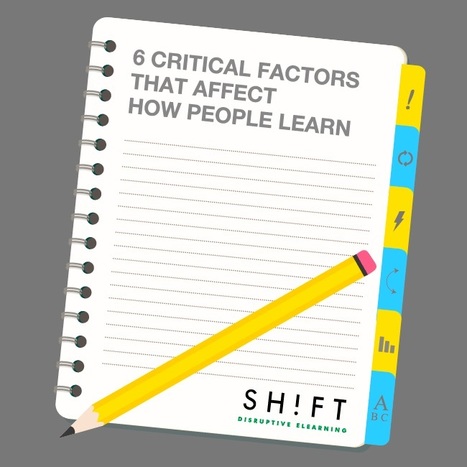"How We Learn by Benedict Carey is focused mostly on memory and learning for recall but it is a good read and there is likely something new about learning here for anyone. Carey is a journalist who went through much of the research on memory in order to make sense himself. By synthesizing and comparing the research on memory and learning, he has done a great service to the non-academic.
One of the first principles discussed is how memory works: “Any memory has two strengths, a storage strength and a retrieval strength.”
'‘Yet there are large upsides to forgetting, too. One is that it is nature’s most sophisticated spam filter. It’s what allows the brain to focus, enabling sought-after facts to pop to mind … “The relationship between learning and forgetting is not so simple and in certain important respects is quite the opposite of what people assume,” Robert Bjork, a psychologist as the University of California, Los Angeles, told me. “We assume it’s all bad, a failure of the system. But more often, forgetting is a friend to learning” … Using memory changes memory — and for the better. Forgetting enables and deepens learning, by filtering out distracting information and by allowing some breakdown that, after reuse, drives retrieval and storage strength higher than they were originally.’
"Carey, paraphrasing Louis Pasteur, says that, “Chance feeds the tuned mind”. When we are tuned to a problem or topic, our mind sees more related cues. “When we are working on a paper about the Emancipation Proclamation, we’re not only tuned into racial dynamics on the subway car, we’re also more aware of our reactions to what we’re noticing.”
"Carey also debunks the power of focused repetition (drill & practice), upon which much formal education and training is based. The research he reviewed shows that ‘interleaving’ (mixing related but distinct material during study) is more powerful. “The mixing of items, skills, or concepts during practice, over the long term, seems to help us not only see the distinctions between them but also to achieve a clearer grasp of each one individually. The hardest part is abandoning our primal faith in repetition.” He concludes that interleaving is “preparing the brain for the unexpected”.
Via Marta Torán, Ricard Lloria



 Your new post is loading...
Your new post is loading...











La reseña del libro "How we Learn" de Benedict Carey escrita por Harold Jarche.
Muy interesante